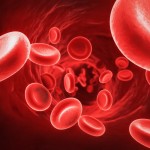
Minor oral surgery including dental extraction is very commonly performed. Prolonged bleeding is an occasional complication but it can be serious for those with inherited bleeding disorders, haemophilia or Von Willebrand disease (VWD).
The aim of this review was to assess the efficacy of antifibrinolytic agents to prevent bleeding complications in people with haemophilia or VWD undergoing oral or dental procedures.
Methods
Searches were conducted in the Cystic Fibrosis and Genetic Disorders (CFGD) Trials Register Medline, Embase, Cochrane Library, CINHAL, ClinicalTrials.gov and the WHO International Clinical Trials Registry Platform (ICTRP). Randomised and quasi-randomised controlled trials in people with haemophilia or VWD undergoing minor oral surgery procedures were considered. Standard Cochrane methodological approaches for study selection, data collection and analysis were followed.
Results
- No trials involving patients with Von Willebrand disease were identified.
- 2 RCTs involving 59 patients with haemophilia undergoing dental extraction were included.
- The risk of bias was considered low in both trials
- One trial of tranexamic acid included 28 participants with mild, moderate or severe haemophilia A and B and one of epsilon aminocaproic acid (EACA) included 31 people with haemophilia with factor VIII or factor IX levels less than 15%.
- Overall, the two trials showed a beneficial effect of tranexamic acid and EACA, administered systemically, in reducing the number of bleedings, the amount of blood loss and the need for therapeutic clotting factor concentrates.
- Risk difference for postoperative bleeding
- Tranexamic acid -0.64 (95% CI; -0.93 to – 0.36)
- EACA -0.50 (95% CI; 0.77 to -0.22)
- Overall -0.57 (95% CI; -0.76 to -0.37)
- Side effects occurred once and required stopping EACA (combined risk difference of -0.03 (95% CI -0.08 to 0.13).
Conclusions
The authors concluded:
Despite the discovery of a beneficial effect of systemically administered tranexamic acid and epsilon aminocaproic acid in preventing postoperative bleeding in people with haemophilia undergoing dental extraction, the limited number of randomised controlled trials identified, in combination with the small sample sizes and heterogeneity regarding standard therapy and treatment regimens between the two trials, do not allow us to conclude definite efficacy of antifibrinolytic therapy in oral or dental procedures in people with haemophilia. No trials were identified in people with Von Willebrand disease.
Comments.
Both of the trials included in this Cochrane review were conducted in the 1970s and despite extensive searches no studies were found involving patients with VWD, which is the most common inherited bleeding disorder. The two trials that were included in this review were also included in another Cochrane review by Coppola et al published in 2015. That review was broader looking at the effectiveness and safety of different haemostatic regimens administered in people with a congenital bleeding disorder for preventing bleeding complications having surgical procedures including minor oral surgery (Dental Elf – 23rd Feb 2015). As the authors note ‘there is no reason to change the use of antifibrinolytic therapy to manage minor oral surgery and dental extractions (oral or dental procedures) in people with haemophilia as there is some evidence on effectiveness in dental extraction without any evidence of potential harm’ However there is no RCT evidence for their use in patients with VWD although the authors note that, ‘existing evidence and pathophysiologic considerations can give a rationale for its use in clinical practice.’
Links
Primary paper
van Galen KPM, Engelen ET, Mauser-Bunschoten EP, van Es RJJ, Schutgens REG. Antifibrinolytic therapy for preventing oral bleeding in patients with haemophilia or Von Willebrand disease undergoing minor oral surgery or dental extractions. Cochrane Database of Systematic Reviews 2015, Issue 12. Art. No.: CD011385. DOI: 10.1002/14651858.CD011385.pub2.
Other references
Dental Elf – 23rd Feb 2015 – Congenital bleeding disorders and dental extractions

Preventing bleeding in patients with congenital bleeding disorders having dental surgery https://t.co/JOn0mFQdPl
Tranexamic acid helps prevents bleeding after dental surgery in haemophiliacs https://t.co/JOn0mFQdPl
Systemic tranexamic acid helps prevent bleeding after dental surgery in haemophiliacs https://t.co/JOn0mFQdPl
Epsilon aminocaproic acid helps prevents bleeding after dental surgery in haemophiliacs https://t.co/JOn0mFQdPl
Systemic tranexamic acid & epsilon aminocaproic acid prevent postop bleeding in haemophiliacs having dental surgery https://t.co/JOn0mFQdPl